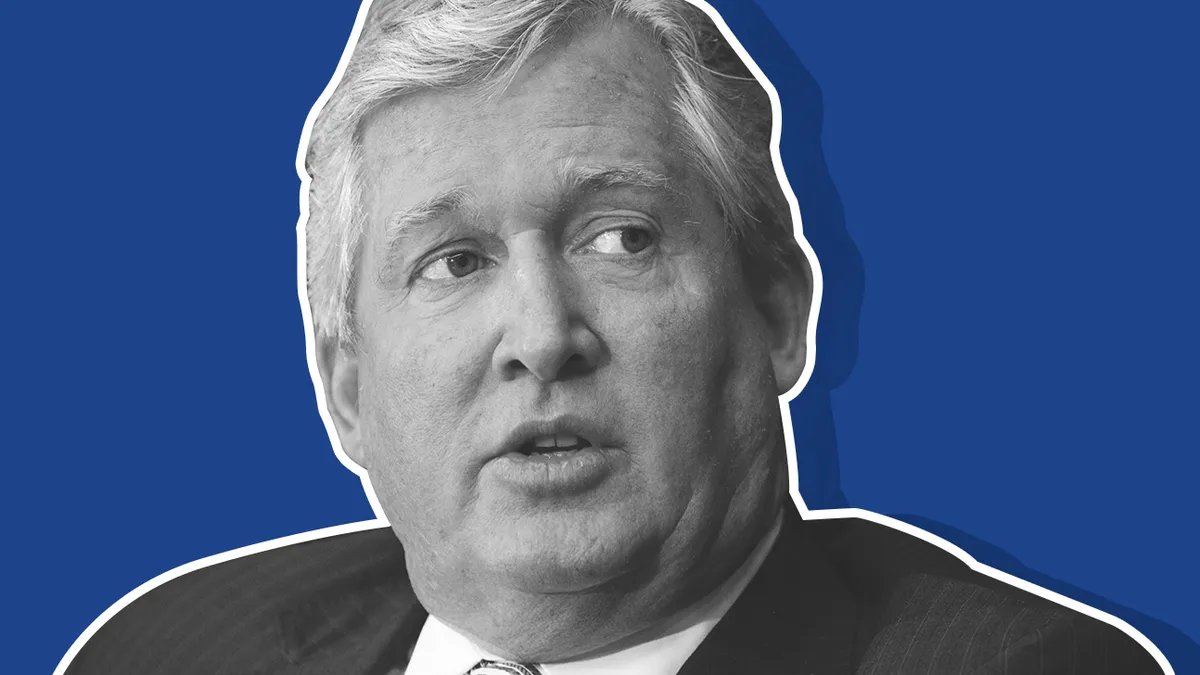Dive Brief:
- The CEO of the largest nuclear generator in the U.S. says the retirement of coal and nuclear plants does not constitute a grid emergency that warrants urgent intervention from the federal government, as President Donald Trump directed last week.
- Exelon CEO Chris Crane said the case for a grid emergency is difficult to make in the PJM Interconnection, the site of many potential retirements, when its reserve margin remains so high — 22% in its latest capacity auction. The company has not advocated for emergency action to save plants from retirement, he said.
- Crane said Exelon would rather work with the Federal Energy Regulatory Commission and regional grid operators to devise market-based plans to value resilience attributes of generators, but with more guidance from DOE and other federal agencies as to the specific nature of national security threats to the grid.
Dive Insight:
Exelon owns all or part of 16 nuclear plants across the Eastern U.S. and could benefit significantly from any federal plan to save them and coal generators from retirement. The company is currently closing down one nuclear plant in the PJM market and said last month that three others failed to clear the grid operator's latest capacity auction.
Even so, Crane said he would not like to see the Department of Energy enact emergency cost recovery or subsidies for generators under threat of closure.
"We would much prefer a market fix that is based off of a design basis that says 'Here's your vulnerability and here's what plants should be compensated at,'" Crane told Utility Dive Tuesday on the sidelines of the Edison Electric Institute's annual conference in San Diego.
Last Friday, President Trump directed Secretary of Energy Rick Perry to recommend steps to bail out the large generators, which are being pushed offline by cheaper power from natural gas and renewables. The order came the same day as the release of a DOE memo advocating the agency use its emergency authority under the Federal Power Act and a 1950s-era defense law to keep plants online.
Crane said he "appreciates the administration's focus," but Exelon has not lobbied the federal government for such action.
"Not emergency action," Crane said of Exelon's policy focus. "We've been pushing for more market design support from DOE and through the markets."
DOE officials argue the retirement of "fuel secure" coal and nuclear generators constitutes a grid emergency and a threat to national security, but Crane disagrees with that assessment in the PJM market.
"It's hard to declare an emergency in PJM when you have a high reserve margin," he said.
Other regions present greater challenges to reliability, Crane said, including ISO-New England, where the grid operator has expressed concerns about fuel security that Exelon hopes to address by keeping a gas plant and adjacent gas import facility online through cost recovery. That application is pending at FERC.
Similarly, Crane said Exelon would prefer to address grid resilience concerns through existing processes at regional grid operators and FERC, which set up an ongoing grid resilience proceeding in January when it rejected a previous coal and nuclear bailout plan from DOE.
"That's exactly what we want to see," Crane said. "Right now we have a resilient docket and we have the ISOs looking at what can be done."
DOE and other federal agencies could better assist those efforts by providing more detailed information on the threats to the electric grid, Crane said, particularly the cyber vulnerabilities of natural gas pipelines, which were mentioned in the leaked DOE memo but have not been detailed publicly.
"We don't know the vulnerability," Crane said. "It's a classified vulnerability as far as we can see it. Until the markets can see what the vulnerability is, we're not going to be able to come up with the right design."
While some of Exelon's nuclear plants remain under threat, the company has been successful in securing state subsidy programs to save others in Illinois and New York — which won the blessing of FERC and the Department of Justice in a legal opinion filed last week.
Those programs are important short-term solutions, Crane said, but Exelon likely cannot meet its public policy goals through state actions alone.
"They're not a long-term fix," Crane said of the state subsidies. "The states have been very supportive, but we work in a big market — PJM is a big market — and if you want to get it right across the market, we need federal intervention in review of market design changes."
Exelon CEO Chris Crane expanded on his interview with Utility Dive on Wednesday, telling an industry conference he wants urgent action to save nuclear plants from retirement, but does not have enough information to endorse the leaked Department of Energy memo.













